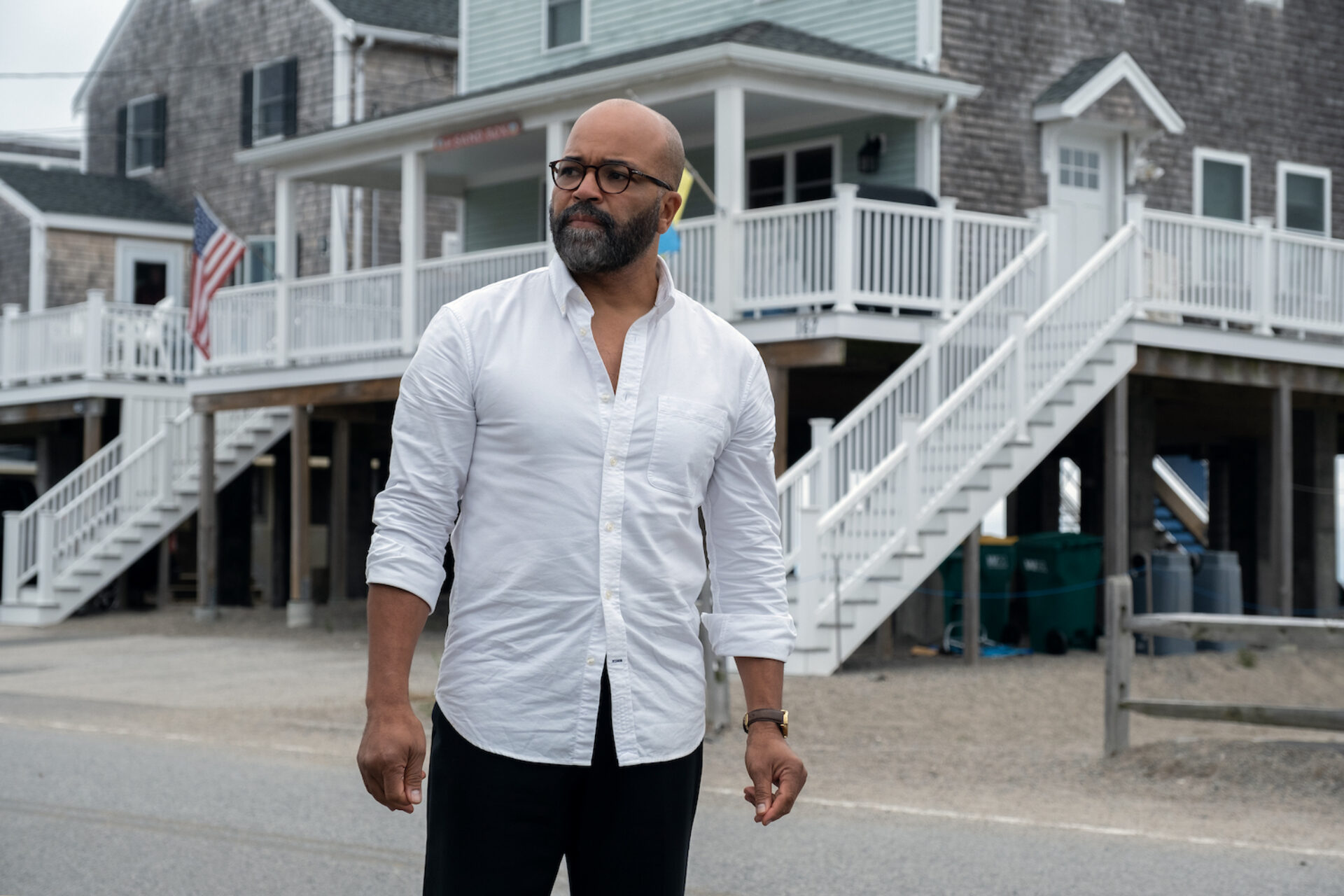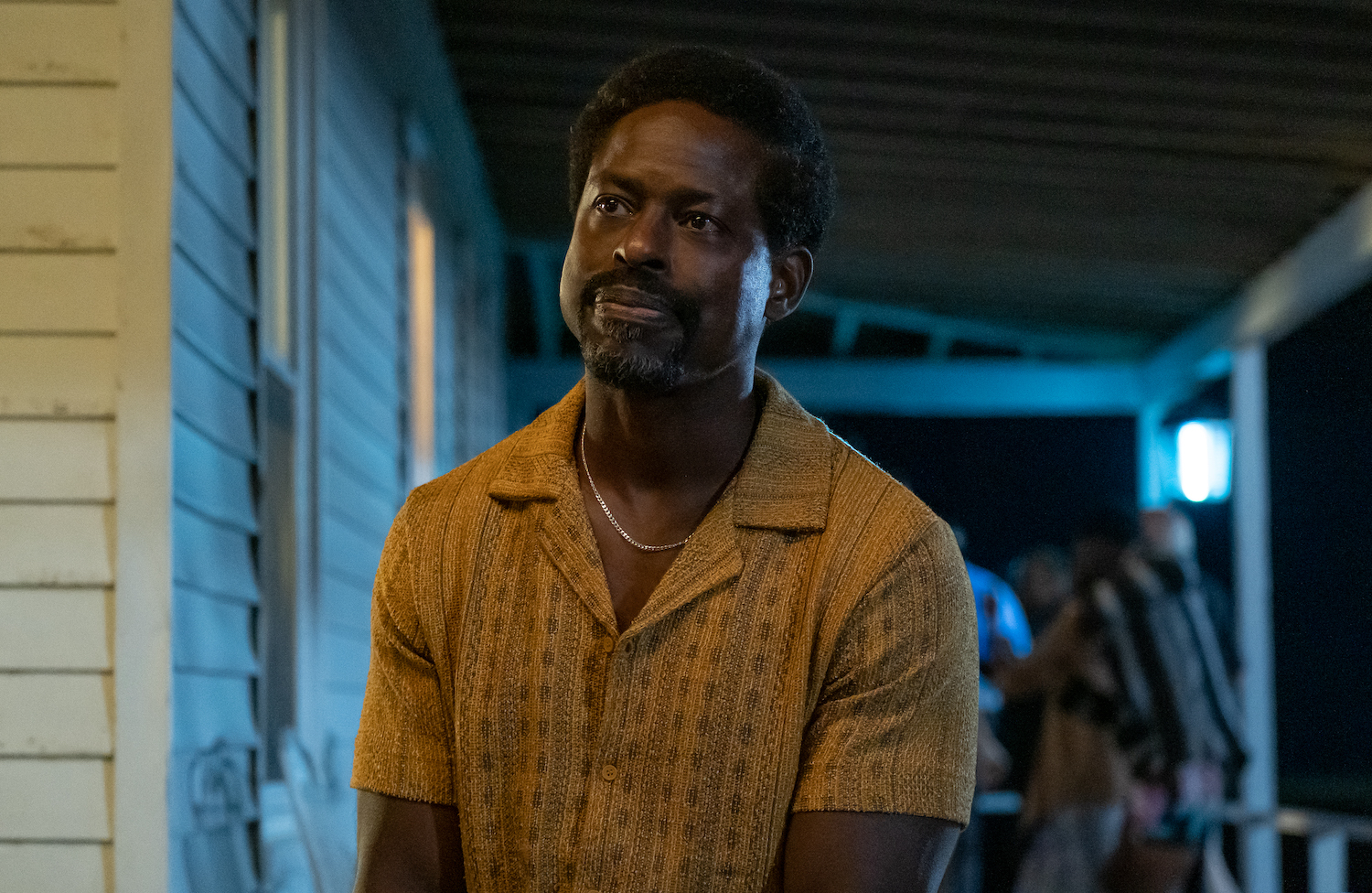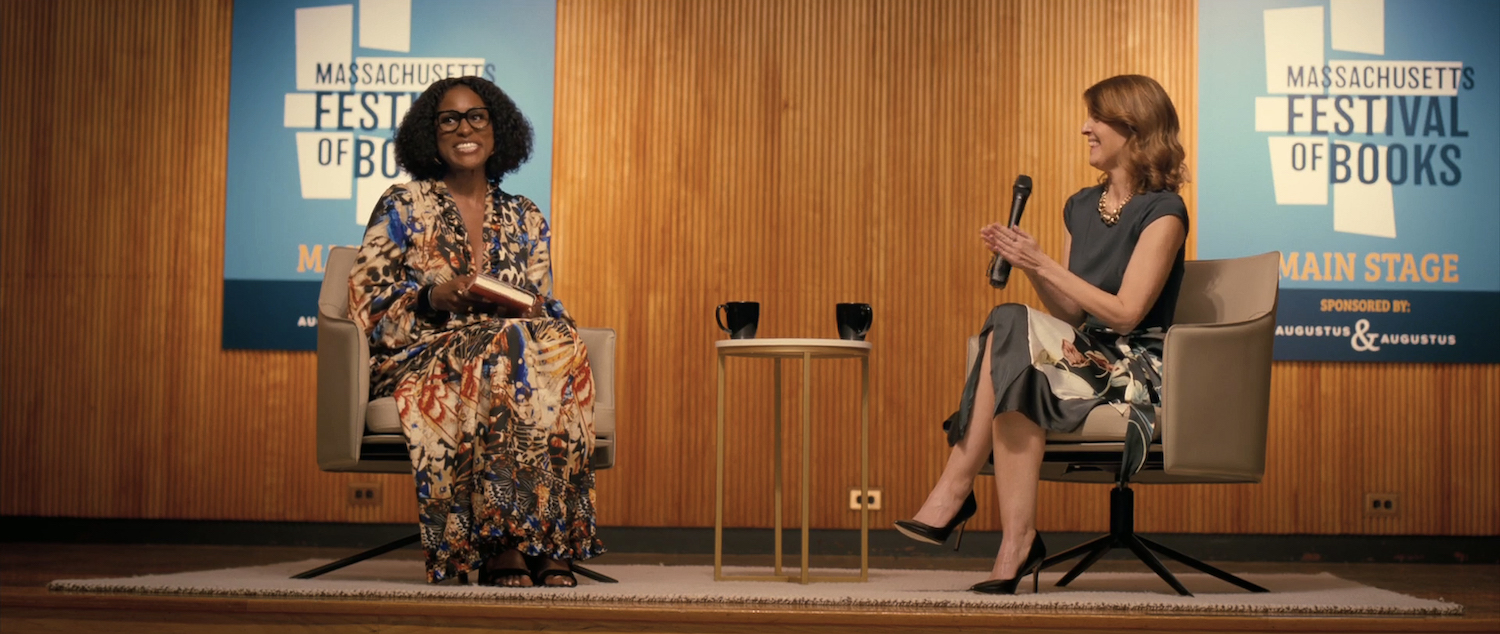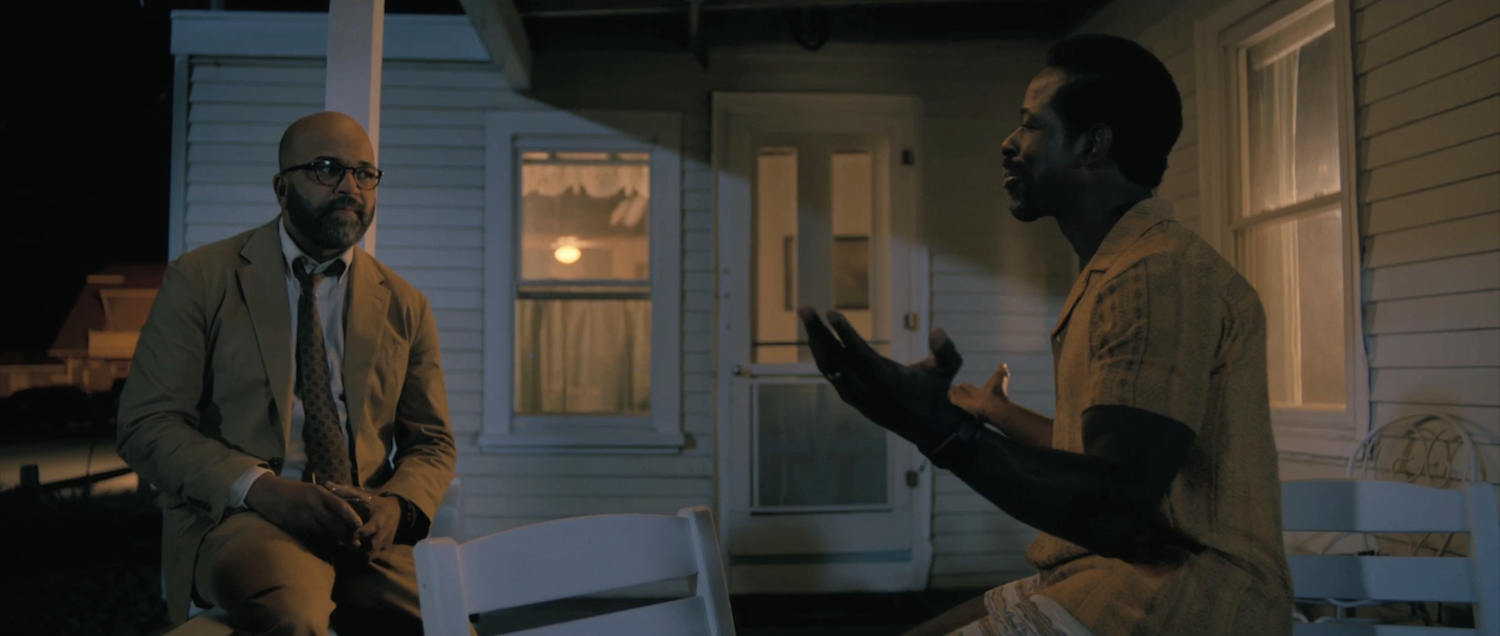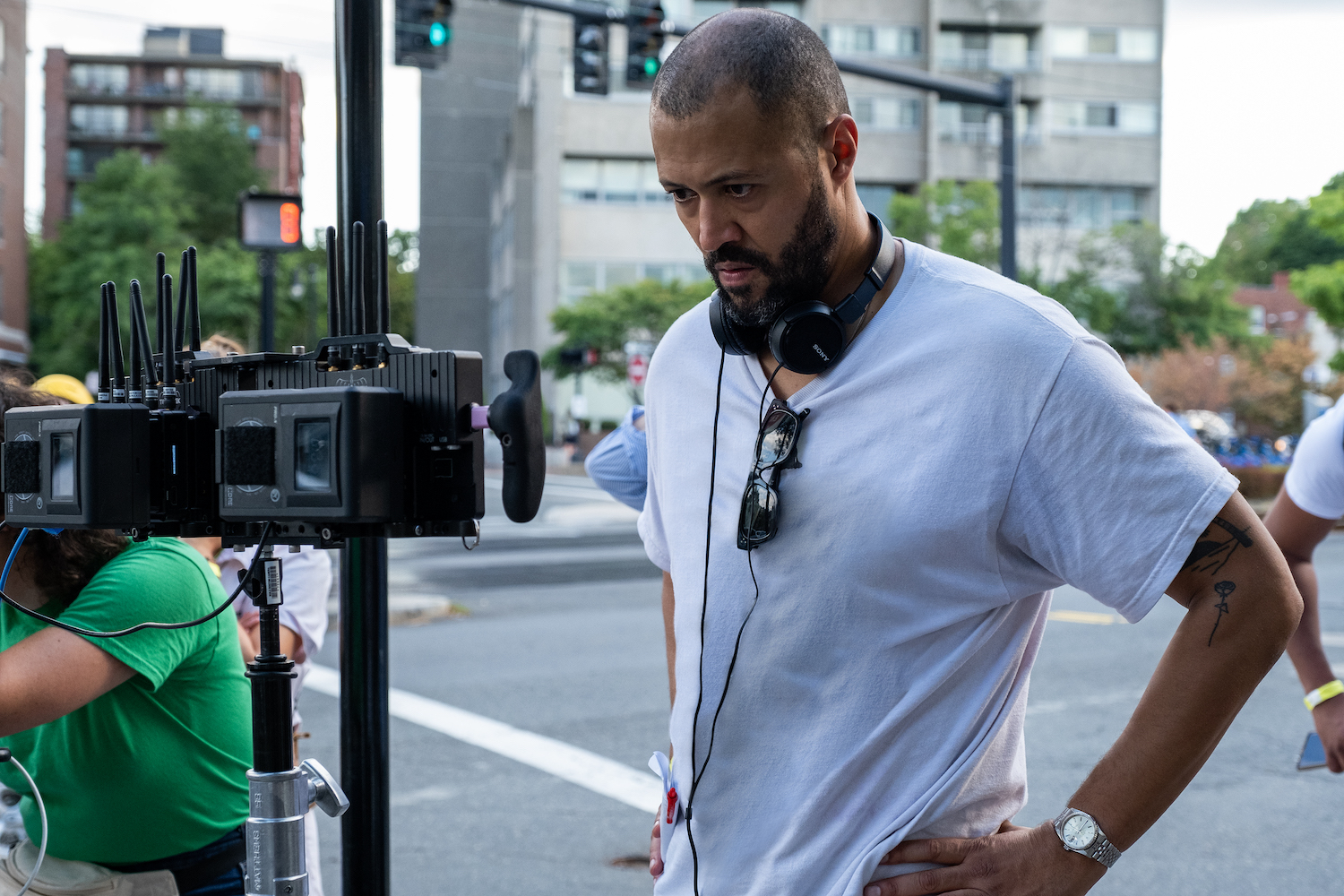REVIEW: New Film American Fiction Flips the Script on Hollywood
Cord Jefferson’s directorial debut, American Fiction, stars Jeffrey Wright (Astroid City, Rustin), Tracee Ellis Ross, Sterling K. Brown (This Is Us), and more, pulls the rug on Hollywood’s racial bias.
Written for the screen and directed by Cord Jefferson, American Fiction sheds light on the industry’s racially biased handling of Black writers and creatives with his debut dramatic comedy. Wright stars as Thelonious “Monk” Ellison, a struggling yet talented writer who can’t catch the attention of publishers until he decides to write a parody of Black culture from a criminal’s mindset, which instantly takes off to his surprise with a slew of offers and praise.
American Fiction is a multifaceted and layered story of a middle/upper class, educated Black family with all of the bells and whistles that any family can relate to. Monk’s character has a sister (Tracee Ellis Ross as Lisa) who passes away unexpectedly, a mother (Leslie Uggams as Agnes) suffering from dementia whom he desperately needs to make money to care for, and a brother portrayed Sterling K. Brown (Clifford Ellison), who is gay, yet living in the closet, unable to come out to his mother before her mind has deteriorated. Monk’s family must find a way to heal their traumas and unite in acceptance, family unity, and self-love.
Monk also has a love interest. Erika Alexander stars as Coraline, the attorney living across the street from the family’s beach home, where Monk has taken his mother to devote to her care. The couple encounters one another and begins a whirlwind romance, but they are riddled with complications as Monk is living a lie; he uses a pseudonym in his newly published book and is perplexed about how the world, including Coraline, loves “his” new work.
Throughout the film, Monk must find a way to navigate his newfound fame and hilariously assumes his new ghost name persona. But how far does he need to take it before he emotionally erupts? Based upon the novel Erasure by Percival Everett, the film was elegantly shot with a brilliant score created by the talented five-time Emmy-winning composer Laura Karpman, which has a nod to the real-life Jazz great Thelonious Monk.
It’s very easy for someone who doesn’t know much or has never taken the time to understand racial bias in Hollywood, to laugh through this dark comedy and have it go straight over their head. Lucky for us, Jefferson has written this screenplay in such a way that even the most obtuse viewer can take away its core message, that Black people are not a monolith.
Glitter was able to ask Cord a question on this messaging at one of the press conferences for the film, where I asked,
“So, you mentioned your comments on the respectability politics of this. But how was this written and performed when you sort of crafting the screenplay to make sure that non-Black audiences and critics didn’t sort of, I guess, go away with the wrong themes of this as far as the, you, AAVE, and this idea of putting certain parts of the Black experience as higher and less than? Just the stereotypical aspects of certain things in the film. You had to be very careful that, even if people weren’t paying attention to what you were trying to say, they were still gonna get it. How did you ensure that for outside audiences while you were doing the project?”
– Nikki Fowler
“So, again, I don’t wanna give a spoiler, but I will say that there is a scene in the movie that is particularly important to me in which Jeffrey Wright’s character, Monk encounters Issa Rae’s character, Sintara. And they have a sort of conversation about Black art and sort of, like, the ideology behind their artwork. And what they sort of, like, focus on, and what they think is important to tell. And what they think is important for Black artists to tell. And to me, again, I don’t want to give it away, but I think that that hopefully speaks. So, I think that’s a
– Cord Jefferson
great question, and it’s something that I don’t have to give away, but Nikki, in particular, if you haven’t seen the film, I would say, look out for the scene in which Jeffrey, in which Monk, talks to Centaura. Because I think that that, to me, when I spoke to Jeffrey about sort of, like, the respectability politics and pull-up-your-pants and the talented thing, we sort of, like, focused on that specific scene and nailing that scene. Because to me, that;s scene is sort of, like, the linchpin to this. Like, and I think that we made an effort to ensure that nobody came away with the idea that there’s a right way to be Black and there’s a wrong way to be Black. And sort of, like, there’s an appropriate way to tell a Black story and an inappropriate way to tell a Black story. I think that, for me, I just took great pains to ensure that. And so, hopefully, again, I’m sorry to speak around this subject by not revealing exactly what I’m talking about. But hopefully, you’ll see what I’m talking about when you watch the film and encounter this scene that I’m discussing because I don’t think I know that it was incredibly important to Jeffrey, myself, and everybody else who was working.”
The entertainment industry, particularly Hollywood, has long grappled with issues of racial bias and stereotyping, with Black writers facing persistent challenges in breaking through systemic barriers. Despite incremental progress, the industry continues to perpetuate harmful stereotypes and pigeonhole Black writers into limited, often one-dimensional roles. Historically, Black characters were marginalized, reduced to tropes like the sassy sidekick, the criminal, or the token friend, reinforcing damaging stereotypes that oversimplify and misrepresent the diverse experiences within the Black community.
Racial bias also manifests in the limited opportunities afforded to Black writers, who struggle to see their stories authentically portrayed on screen. Hollywood’s tendency to overlook nuanced narratives written by Black creatives perpetuates a cycle of underrepresentation, hindering the industry’s ability to reflect the complexity of Black experiences accurately. The lack of diverse perspectives behind the scenes further exacerbates the problem, as decision-makers often fail to appreciate the cultural richness and depth that Black writers can bring to storytelling.
Addressing these issues requires a concerted effort from the industry to dismantle systemic biases, promote inclusivity, and provide platforms for Black writers to showcase their talent and tell their stories authentically. The ongoing dialogue around diversity and inclusion in Hollywood must lead to concrete changes in hiring practices, story development, and overall representation to create a more equitable and just entertainment landscape.
American Fiction has had an overall positive effect on Hollywood with a slew of amazing performances, and we hope the messages and themes translate offscreen as well as they did onscreen throughout the entertainment industry.
Watch the trailer below and find out how to watch it here.

Award-Winning Publisher, Writer, Critic + Journalist || Tweet me @nikkifowler28

